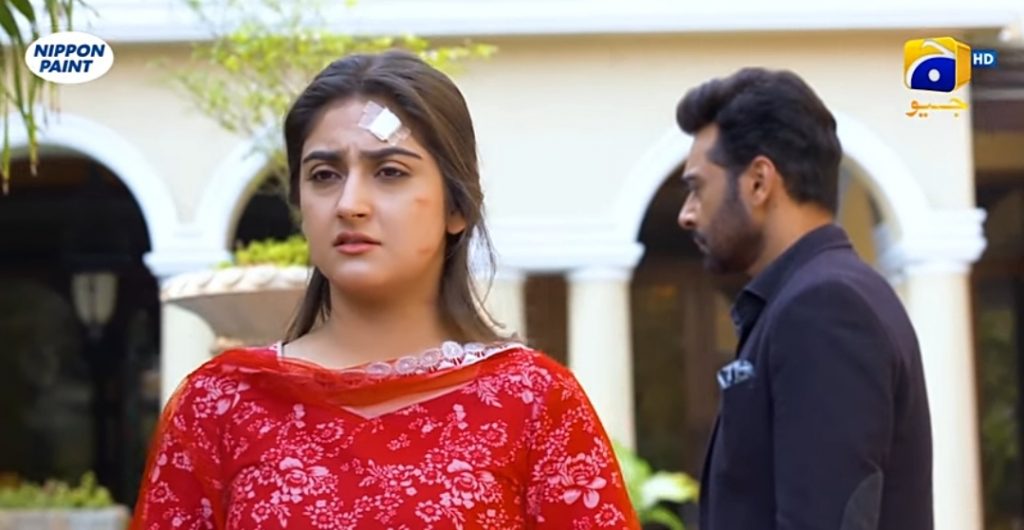“Fitoor” finally came to an end after a drawn-out 47 episodes. While this is a drama that had high expectations from it due to its star cast and has been a TRP churner throughout its entire run, this is also a show that intelligent audiences checked out of long ago due to the deep-rooted misogyny and woman-shaming that has been fed to its viewers. Starring Faysal Qureshi, Hiba Bukhari, Wahaj Ali and Kiran Haq in lead roles, the story has been written by Zanjabeel Asim and directed by Siraj Ul Haq.
In the finale, there isn’t any trace of Hamza (Wahaj Ali), the character who has been the “pull” of this show. We witnessed him getting married against his will in the hospital to a cousin he hasn’t ever shown interest in after he attempted to kill himself and Dilnasheen in a car accident (and succeeded at killing her baby) and that’s the end – Hamza’s story is finished. Honestly, Wahaj Ali deserved more. His character, Hamza, deserved more – specifically to not be written into a corner as a “villain.” There’s a dangerous presedent that has been set by our shows, depicting anyone who falls into alcohol or drugs as “bad” and hopeless. Hamza genuinely loved Dilnasheen and this is why he ended up in such a warped space. And in the end, Hamza’s mother, who was the cause of both Hamza and Dilnasheen’s grief to begin with, essentially “wins,” forcing her son to do exactly what she wanted him to do.
There isn’t any trace of Mehmal (Kiran Haq), a character who created a huge rift between Haider (Faysal Qureshi) and Dilnasheen (Hiba Bukhari) as newlyweds. Mehmal is a character who suffered her own form of grief, but that grief was self-chosen by marrying a man who didn’t love her. Mehmal then brought herself into Haider’s life after his marriage, completely disrupting his married life and quite obviously making a play for him. Mehmal’s actions and Haider’s reactions to those actions are what caused Dilnasheen’s decision to return to Hamza. This entire scenario was not created by Dilnasheen, rather it was caused by Haider’s behavior – and worsened by his suspicions and physical abuse.
In the finale, we see Dilnasheen begging for forgiveness. We see Haider refusing to forgive her – but who forgave him? What about his crimes? Those are briefly touched upon by his own mother, who convinces him to forgive Dilnasheen because – gasp! – Haider’s father also forgave her past. Why does her past have to be forgiven? It was her past. The problem has always been the present – a present in which Dilnasheen was mistreated and abused, forced to find happiness elsewhere. Yes, Dilnasheen sat in a car with Hamza and that caused her miscarriage, but isn’t she also a woman grieving the loss of her child? Oh, no sorry, that’s just Haider. Of course, in the end, Haider and Dilnasheen reunite, but it’s as though Haider has done Dilnasheen a favor by forgiving her – when forgiveness goes both ways.
“Fitoor” is a show that one will not miss at all – though it seems many loved the ending and the “message” of forgiveness (odd). What this means for the Pakistani drama industry is that content like this will continue to be made, as it brings in ratings – and so, viewers like myself who wish to see change and progress in dramas with stories that show strong women fighting for their rights….we will continue to complain. Fortunately for us, shows like “Parizaad,” “Aakhir Kab Tak” and “Laapata” are being made and we can only hope that these shows will, one day, draw in higher ratings than this poor, regressive content.
